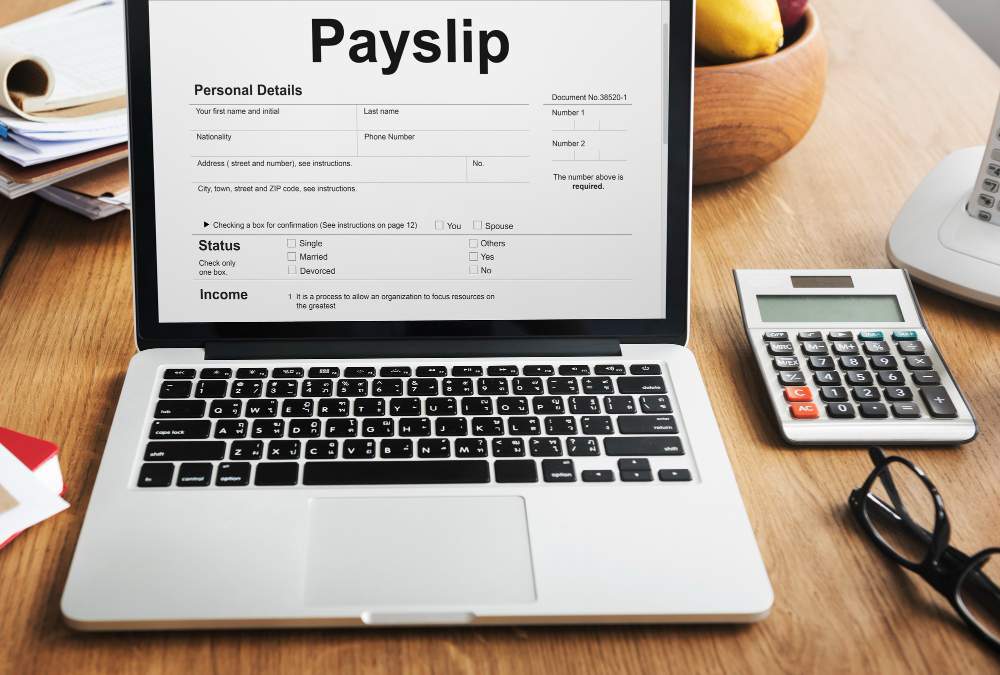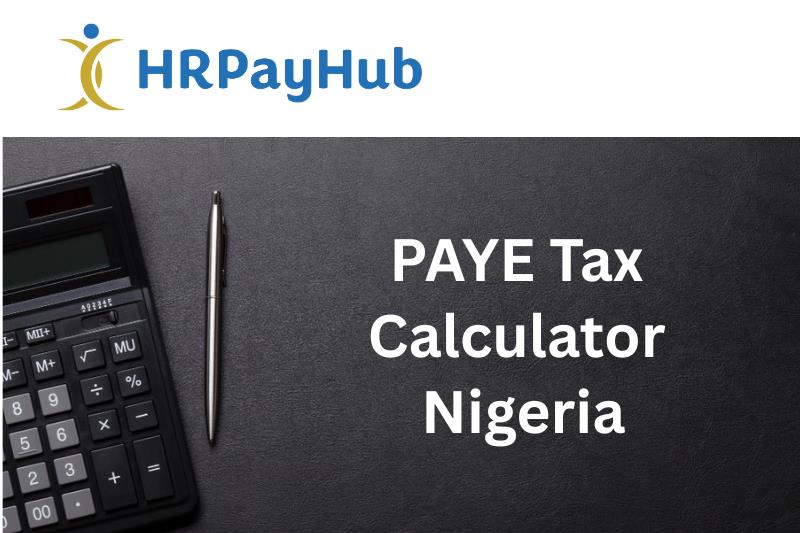
AI and skills-based hiring are transforming Nigeria’s job market. Learn how to upskill and land global opportunities with Delonjobs.
The world of work is changing fast, and nowhere is this more evident than in how people find jobs and how companies hire. In Nigeria, artificial intelligence (AI) and skills-based hiring are transforming recruitment from paper qualifications to practical competencies. This article explores how AI is shaping job applications, how employers are shifting their focus to skills, and how Nigerian job seekers can position themselves to win in this new landscape. With insights from global hiring trends, practical examples, and actionable strategies, we break down what the future of work looks like and why digital hiring platforms are at the forefront of connecting top talent to the right opportunities. Whether you’re a job seeker or employer, this piece offers the clarity and strategies needed to navigate the new world of recruitment.
Introduction: A Changing Landscape
The job hunt used to be simple. You polished your CV, listed your degree and experience, and hoped a recruiter would notice. Today, your CV may never be seen by human eyes. Before any recruiter opens your application, an algorithm has already made a decision.
Across Nigeria and beyond, artificial intelligence (AI) has quietly moved from the background of HR systems to the frontline of hiring. It’s sorting resumes, matching skills, and even conducting initial interviews. At the same time, skills-based hiring is overtaking the old credential-focused model.
For a country like Nigeria; home to millions of young, talented people this shift represents both a challenge and an opportunity. Job seekers who rely only on degrees may get filtered out. But those who can demonstrate real, marketable skills have a stronger chance of standing out.
This essay explores how AI and skills-based hiring are redefining opportunities for Nigerians, what employers are looking for, and how platforms like Delonjobs are helping bridge the gap between talent and demand.
The Rise of AI in Hiring
Not long ago, hiring involved stacks of paper resumes and endless interviews. Today, recruiters log into Applicant Tracking Systems (ATS) powered by AI tools that filter applications in seconds.
According to a LinkedIn Global Talent Trends Report, over 67% of recruiters now rely on AI in some form during the hiring process. In Nigeria, multinational firms and fast-growing startups are following this trend, automating early stages of recruitment to save time and focus on candidates that fit their criteria.
AI in hiring often involves:
- Keyword scanning of resumes for relevant skills and experience.
- Predictive matching that ranks candidates based on suitability.
- Automated interview scheduling and chatbot screening.
- Skill assessments using gamified or structured testing.
For employers, this means faster hiring. For job seekers, it means learning to communicate skills in a way AI understands structured CVs, optimized keywords, and demonstrable capabilities.
Why Skills Are Outshining Degrees
Traditional hiring has long placed weight on certificates, degrees, and previous titles. But companies are learning that credentials don’t always equal competence.
A 2024 World Economic Forum report revealed that over 50% of employers globally are shifting to skills-first hiring, focusing more on what candidates can actually do rather than what they studied.
In Nigeria, this shift is visible in industries like tech, logistics, renewable energy, fintech, and digital marketing. Employers are seeking people who can code, analyse data, manage digital campaigns, or troubleshoot systems these are skills that can be learned through bootcamps, online courses, or practical projects.
For job seekers, this is encouraging. You no longer need a perfect academic background to get noticed. You need skills that solve real business problems.
Nigeria’s Youth and the Skills Revolution
Nigeria has one of the largest youth populations in the world, with more than 60% under the age of 25. This is a huge advantage that would work more effectively if the talent pool is aligned with what the job market demands.
The skills revolution is happening across industries. Coding, digital marketing, UI/UX design, data science, and customer support are in high demand. Platforms like Coursera, Udemy, and local bootcamps have enabled young Nigerians to learn practical skills from anywhere.
But the real transformation comes when these skills meet opportunity. And this is where digital hiring platforms like Delonjobs play a critical role in connecting youth with organizations actively seeking skills over degrees.
It’s the new reality of hiring.
How Employers Are Adapting
While job seekers are upskilling, employers are also restructuring how they hire. Many Nigerian companies, especially in fintech and energy, have adopted hybrid hiring models:
- AI Screening for initial filtering.
- Skill assessments to evaluate capabilities.
- Human interviews focused on culture fit, communication, and problem-solving.
These companies are also rethinking job descriptions. Instead of “Bachelor’s degree required,” more ads now say, “Proficiency in X tool required” or “Experience with Y platform preferred.”
This shift creates a more inclusive hiring environment; one where self-taught and bootcamp-trained professionals can compete fairly.
The Role of AI in Levelling the Playing Field
One of the surprising upsides of AI in recruitment is its potential to reduce bias. Human recruiters may have unconscious biases, but AI systems can focus purely on skills and match when they are properly trained.
While this isn’t perfect (AI systems can also inherit biases if poorly designed), platforms are becoming more transparent. Some AI-powered ATS solutions anonymize names, schools, age and gender to focus on skills and experience alone.
For Nigerians applying globally, this can be a game-changer. A well-structured CV and skill set can get you noticed without traditional connections or extra legs or elite school networks.
Storytelling in the Job Hunt: Standing Out to Both AI and Humans
As AI takes over the first layer of screening, human recruiters now spend less time on each application. What makes them stop and pay attention? A clear story.
Your CV and cover letter should tell a narrative: who you are, what skills you bring, and how you’ve solved real problems. Instead of listing responsibilities, describe impact, outline your values and make use of relevant keywords.
Instead of saying: “Worked as a customer service agent.”
Say: “Resolved over 500 customer issues within a quarter, increasing satisfaction ratings by 30%.”
This language not only gets picked up by AI (keywords like customer satisfaction, resolved, increased) but also captures human attention.
Preparing for AI-Driven Recruitment
AI is scanning CVs and now conducting video interviews through structured question banks, analysing tone, speech, and even body language.
Many companies use platforms like HireVue to automate initial interviews.
To prepare:
- Practice common interview questions on camera.
- Keep answers concise and clear.
- Highlight skills, measurable achievements, and problem-solving abilities.
- Use keywords relevant to the job description.
AI can only detect clarity and relevance not your passion.
The Power of Upskilling and Lifelong Learning
One undeniable truth in 2025’s job market is that skills get outdated fast.
AI and automation mean jobs evolve quickly, and those who keep learning are the ones who stay relevant. Employers are increasingly hiring based on learning agility, not just static qualifications.
Nigerians are already embracing this shift. More young professionals are taking:
- Short online courses in tech, design, data, marketing, and languages.
- Certifications recognized globally.
- Internships and freelance projects to build real-world experience.
This continuous learning mindset aligns perfectly with the skills-first hiring movement.
AI and Remote Work: Expanding Opportunities
Another major trend shaping hiring in Nigeria is remote work. AI tools are making it easier for companies abroad to source Nigerian talent for global roles.
Platforms that combine AI-driven matching and skills-based recruitment are opening doors for Nigerians to work remotely for companies in the U.S., Europe, and Asia.
This means:
- More access to dollar-paying jobs.
- Greater competition, but also greater rewards for those with the right skills.
- A chance to build global careers without leaving home.
Delonjobs has increasingly featured remote-friendly opportunities, especially in IT, design, and digital services.
For Employers: Tapping into Nigeria’s Talent Pool
For employers reading this, Nigeria represents a goldmine of young, ambitious, and tech-savvy talent.
By using AI and skills-based hiring:
- You reduce hiring costs and time.
- You access a diverse pool of qualified candidates.
- You build more future-proof teams with adaptable skill sets.
Many companies now partner with platforms like Delonjobs to streamline their hiring, identify top performers, and scale fast.
Ethical AI and Fair Recruitment
Of course, no conversation about AI in hiring is complete without acknowledging its ethical challenges.
Bias in AI algorithms and data privacy concerns, including overreliance on automation can create new problems if unchecked. Employers must balance AI tools with human oversight, ensuring fair and inclusive hiring practices.
Job seekers, on the other hand, should understand their rights, how their data is used, and what to expect in automated hiring processes.
Building a Personal Brand in the Age of AI
With AI scanning thousands of applications, personal branding has become more important than ever. A strong online presence increases your visibility and credibility.
Steps for Nigerian job seekers:
- Build a professional LinkedIn profile with keywords.
- Create a portfolio site showcasing your projects.
- Engage in industry conversations and communities.
- Always keep your profile updated.
This ensures recruiters can find you faster, sometimes before you even apply.
Practical Guide: How to Win in an AI + Skills-Based Job Market
For Job Seekers
- Optimize your CV for ATS.
- Focus on high-demand skills.
- Build a story-driven profile.
- Learn continuously.
- Be visible online.
For Employers
- Use AI tools ethically.
- Prioritize practical skills over degrees.
- Shorten your recruitment cycle with automated screening.
- Collaborate with local platforms like Delonjobs to access pre-screened talent.
Looking Ahead: Nigeria’s Future Workforce
Nigeria’s workforce is standing at a historic intersection. The combination of:
A young, tech-hungry population, AI-driven hiring processes, and a growing global demand for digital skills, creates an unprecedented opportunity.
Those who adapt, both job seekers and employers, will lead the future of work.
Bridging the Digital Skills Gap in Nigeria
Despite the momentum of AI and skills-based hiring, one challenge remains front and center: Nigeria’s digital skills gap. While millions of young people are eager to work, not everyone has the technical skills or digital literacy required to thrive in this new environment.
According to a World Bank report, over 50% of Nigerian youth lack the digital skills necessary for modern jobs. This doesn’t mean they lack potential; it simply means the education system and training ecosystem are still catching up with the pace of global technological change.
This gap is most visible in:
- Rural or underserved areas where digital access is limited.
- Industries rapidly adopting tech, such as fintech, energy, health tech, and logistics.
- Entry-level candidates who have the enthusiasm but not the exposure.
However, this gap is also an opportunity. Employers, governments, and platforms like Delonjobs can work together to create targeted training-to-hire pipelines, equipping job seekers with practical skills that lead directly to employment.
Skills-to-Job Programs
In 2024, several Nigerian startups began partnering with training hubs to upskill young graduates in software engineering and data analysis. Once trained, candidates were automatically matched with employers through AI-powered platforms drastically shortening the hiring cycle.
For job seekers, this means it’s no longer just about applying for jobs; it’s about strategically preparing for the roles employers actually need.
Soft Skills: The Missing Piece in an AI-Driven Market
In the rush to learn technical skills, many job seekers forget something just as valuable: soft skills. AI can scan for technical keywords, but employers still rely heavily on communication, adaptability, leadership, and emotional intelligence when making final decisions.
Recruiters increasingly report that:
- Candidates with strong problem-solving skills get selected faster.
- Clear communication during interviews sets applicants apart.
- Adaptability and learning agility are major hiring factors in fast-changing industries.
- Candidates now get jobs not just based on skill but based on how their value is communicated.
How AI Is Changing Recruitment for Small and Medium Businesses (SMBs)
Most discussions about AI in hiring focus on large corporations, but SMBs are also transforming how they recruit talent. These businesses which make up over 90% of Nigeria’s private sector, are increasingly adopting affordable AI-powered hiring tools to compete for top talent.
Benefits for SMBs include:
- Faster candidate screening without expensive HR departments.
- Access to a wider talent pool, including remote applicants.
- Skills-based matching that levels the playing field with bigger firms.
- Better retention by hiring for fit and capability, not just credentials.
Through platforms like Delonjobs, SMBs can post roles, access automated shortlisting, and find qualified candidates in less time, often within days rather than weeks.
Globalization and the Nigerian Workforce
Another powerful trend shaping hiring is globalization. Companies around the world are realizing that talent is borderless, and Nigeria is emerging as one of the most vibrant talent markets in Africa.
Nigerians are being hired remotely for:
- Software development
- UI/UX design and creative roles
- Content writing and marketing
- Data analytics and cybersecurity
- Virtual assistance and customer support
This global shift means Nigerian job seekers are no longer limited by location. With the right skills and visibility, they can compete for global opportunities and earn foreign income; a major boost in today’s economy.
The Role of Universities and Bootcamps in the New Hiring Ecosystem
Traditional universities once held the monopoly on job preparation. But in today’s AI-powered, skill-first world, bootcamps and micro-learning platforms are taking centre stage.
What’s Changing:
-Shorter, focused training programs are producing job-ready candidates faster.
-Employers are partnering with bootcamps to design curricula that match real job requirements.
-University graduates are complementing degrees with certifications and hands-on projects to stay competitive.
For example, coding bootcamps in Lagos and Abuja have successfully placed thousands of graduates into remote jobs within 6–12 months, something that was harder through traditional academic routes alone.
This doesn’t mean degrees are obsolete. It means degrees are no longer enough on their own. A blended path formal education and practical skill training is becoming the most powerful combination so it’s much better to get yourself fully armed.
How Employers Can Build Stronger Teams Through Skills-Based Hiring
Employers are beginning to realize that skills-first hiring is smarter. When companies focus on what candidates can do rather than where they studied, they unlock a much larger talent pool.
-Practical steps employers can take:
-Redesign job descriptions to highlight skills, not just credentials.
-Use AI tools to standardize screening and reduce bias.
-Offer onboarding training to bridge small skills gaps.
-Build talent pipelines through partnerships with platforms like DelonJobs and local training hubs.
This approach builds resilient, high-performing teams ready for future challenges.
Preparing for the Future: From Job Seeker to Job Shaper
The future of work is something to build not something to passively wait for. Nigerian job seekers have the chance to fill jobs and to shape industries.
Entrepreneurs, freelancers, creators, and skilled professionals are using:
-AI tools to launch independent services.
-Global platforms to market their skills internationally.
-Communities and hubs to collaborate and grow.
This shift from job seekers to job shapers will define the next decade of Nigeria’s workforce story. As the hiring landscape grows more competitive, platforms that combine recruitment with career empowerment will shape how Nigerians navigate their career journeys.
Conclusion: The New Job Hunt Begins Here
AI and skills-based hiring are not distant trends. They are shaping Nigeria’s job market right now. For job seekers, the opportunity to bypass traditional barriers and compete globally has never been greater. For employers, the ability to tap into a rich pool of talent with real skills has never been easier.
The future belongs to those who can learn, adapt, and show their value clearly.
And for both sides of the equation, Delonjobs remains a trusted bridge in helping employers find the best talent and giving Nigerians the platform to showcase their skills to the world.
Start your new job hunt the smart way; powered by skills, amplified by AI.



















